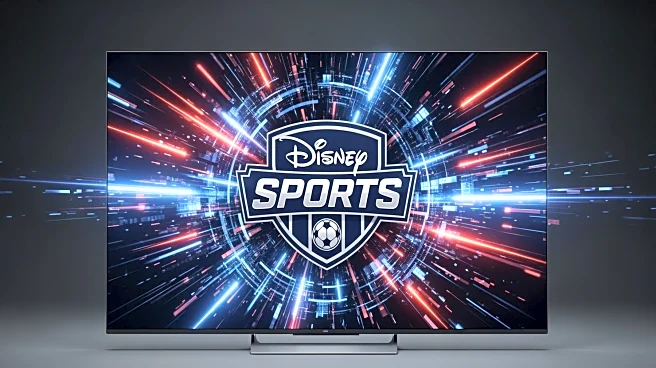What's Happening?
Disney and YouTube TV are embroiled in a carriage dispute that has affected the availability of sports programming for YouTube TV subscribers. The disagreement has led to ESPN making its College GameDay
available for free on the ESPN App for the second consecutive week. The dispute centers around the terms for carrying Disney's networks, including ESPN and ABC, on YouTube TV. Despite similar agreements being reached with other providers like Fox and Comcast, Disney and YouTube TV have yet to come to a resolution. This impasse has resulted in a blackout of Disney's networks on YouTube TV, affecting millions of subscribers during a busy sports season.
Why It's Important?
The ongoing dispute between Disney and YouTube TV is significant as it impacts a large number of sports fans who rely on YouTube TV for access to ESPN and ABC's sports programming. The blackout has led to a decrease in viewership for major sports events, such as Monday Night Football, which saw a 21.4% drop in audience numbers. This situation highlights the complexities of carriage agreements and the potential consequences for consumers when negotiations stall. The availability of free programming on alternative platforms may influence consumer behavior, potentially driving subscribers to switch services.
What's Next?
As the dispute continues, Disney has indicated that it is working towards a fair resolution with YouTube TV. However, the lack of progress suggests that the blackout may persist, affecting upcoming sports broadcasts. Disney's strategy of offering free access to College GameDay may continue as a temporary measure to retain viewer interest. The situation remains fluid, with potential implications for future negotiations between content providers and streaming services.
Beyond the Headlines
The dispute raises broader questions about the future of sports broadcasting and the role of streaming services in delivering content. As traditional cable networks and streaming platforms vie for dominance, consumers may face more disruptions in access to content. The situation underscores the importance of flexible and fair carriage agreements that prioritize consumer access and satisfaction.








